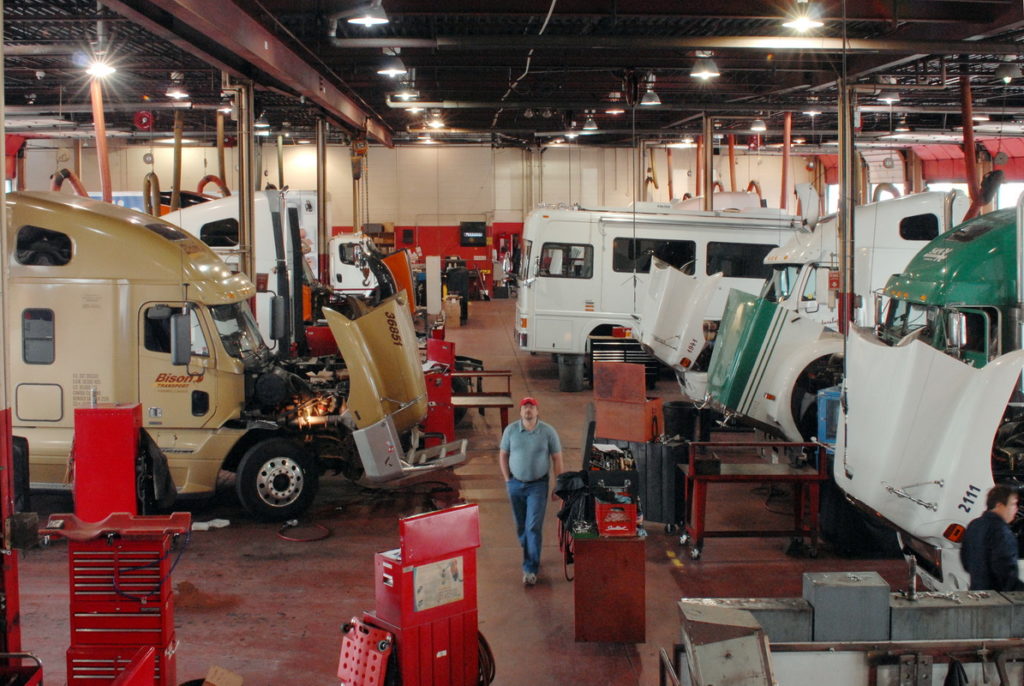Drivelines, emissions, exhaust top list of most labor-intensive truck shop tasks
ARLINGTON, Va. – If your shop is tucking into repairs on a clutch assembly or auto transmission, technicians should prepare themselves for some of the most labor-intensive tasks on a truck.
Both tasks continue to top the list of the 98 most labor-intensive shop activities, identified through the Technology and Maintenance Council’s second-annual survey on standard repair times, at a respective 9.49 and 9.07 hours.

Of the 10 most labor-intensive tasks, two related to emission and exhaust systems, while two involved drivelines, observed VMRS (Vehicle Maintenance Reporting Standards) services manager Jack Poster, when presenting the survey results during a related webinar.
Work on brake air compressors also proved to be more difficult than radiator replacements, he added.
The Top 5 labor-intensive jobs rounded out with EGR coolers at 6.37 hours, air brake compressors (5.26 hours), and radiators (5.17 hours).
At the bottom of the list were aero wheel covers, which require 15 minutes of time, wiper blades (.27 hours), individual gladhands (.32 hours), lubing fifth wheels (.35 hours) and the combination of service and emergency gladhands (.43 hours). Headlights, shock absorbers, seven-pin connectors and AC belts also continued to prove themselves as relatively quick tasks.
Several changes were observed when comparing the 2020 and 2019 results, Poster said, noting that the largest increases were associated with air conditioning repairs.
Time on expansion valves increased to an average of 2.78 hours, up from 1.72 hours. Accumulator repair times were up to 2.14 hours from 1.58, while receiver dryer repair times were at 1.76 hours in 2020 compared to 1.18 hours in 2019.
Coolant-related repair times were also on the rise. Time on radiators added up to an average of 5.17 hours this year, compared to 4.61 hours in 2019. Thermostat work took 2.45 hours, up from 1.81 hours in 2019, while the time on water pumps rose to 3.28 hours from 3.08 hours.
In contrast, technicians are seeing a drop in the time on battery and starter repairs. Battery work took an average of .86 hours this year, compared to 1.06 hours in 2019, while starter work took 2.58 hours versus 2.64 hours, and starter relay repairs took .75 hours compared to .81 hours.
Repair times also dropped when it came to work associated with diesel exhaust fluid (DEF). Time on doser valves dropped to an average of 1.40 hours compared to 1.93 hours in 2019; DEF tanks dropped to 2.31 hours from 3.07 hours; and DEF tank heaters dropped to 1.68 hours from 2.61 hours.
This could be because technicians are becoming more familiar with the systems, he said.
Overall, the longer repair times could be associated with everything from shop turnover to additional protocols introduced in the fight against Covid-19, he added.
Forty-four labor tasks recorded increases, while 31 saw decreases.
The survey results were drawn from 50 responses, and did not consider rates or brands.
Have your say
This is a moderated forum. Comments will no longer be published unless they are accompanied by a first and last name and a verifiable email address. (Today's Trucking will not publish or share the email address.) Profane language and content deemed to be libelous, racist, or threatening in nature will not be published under any circumstances.